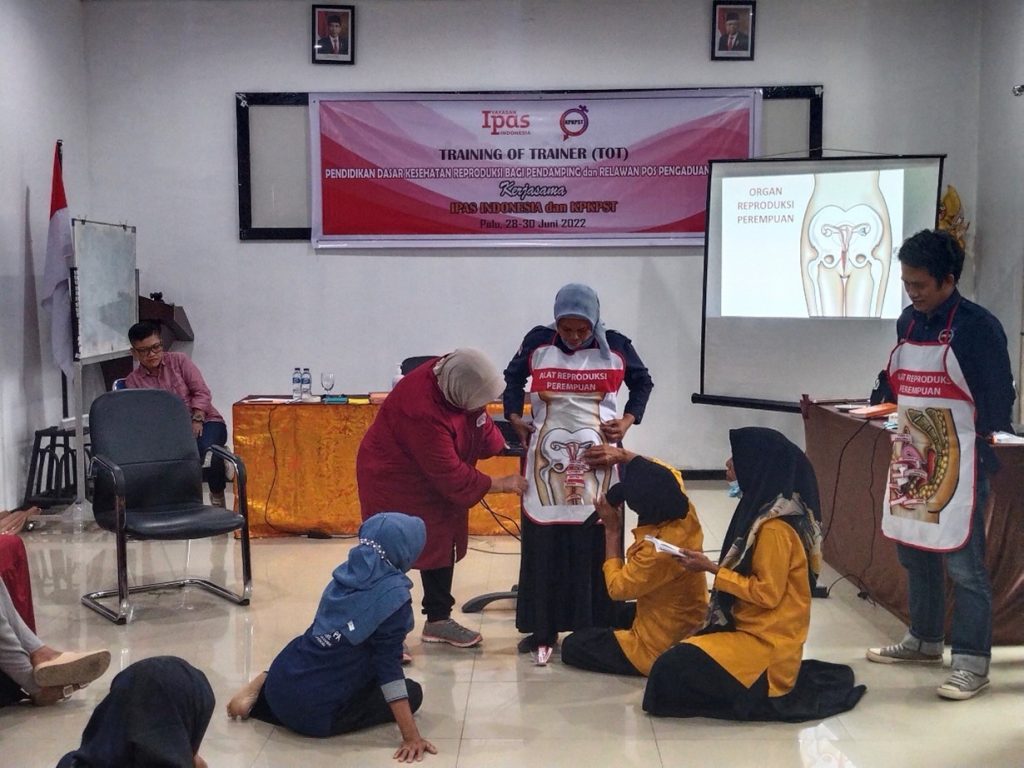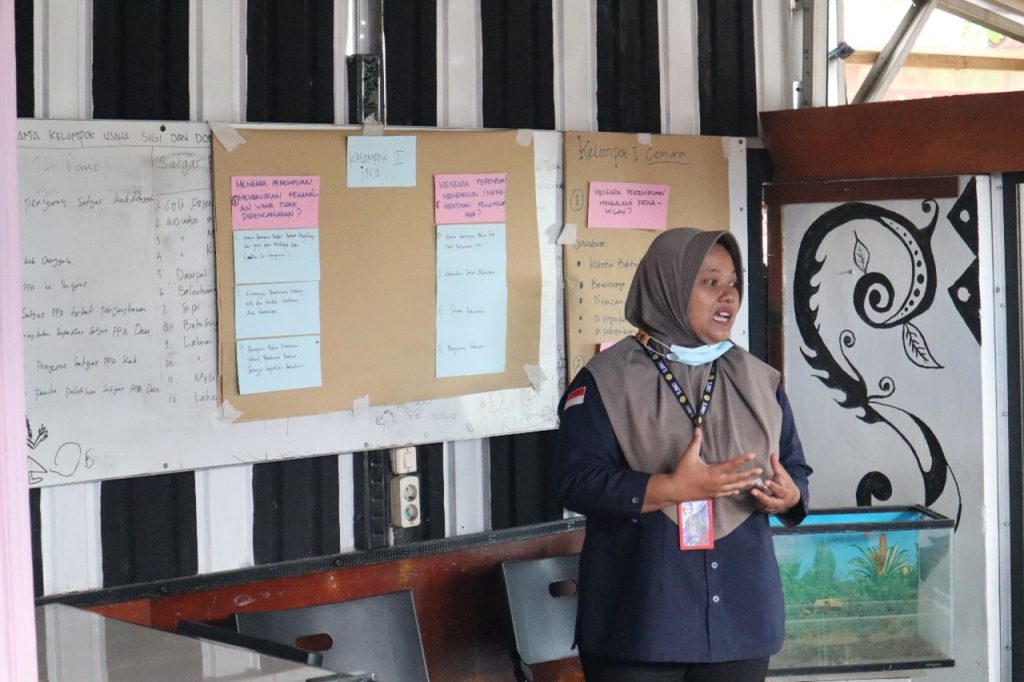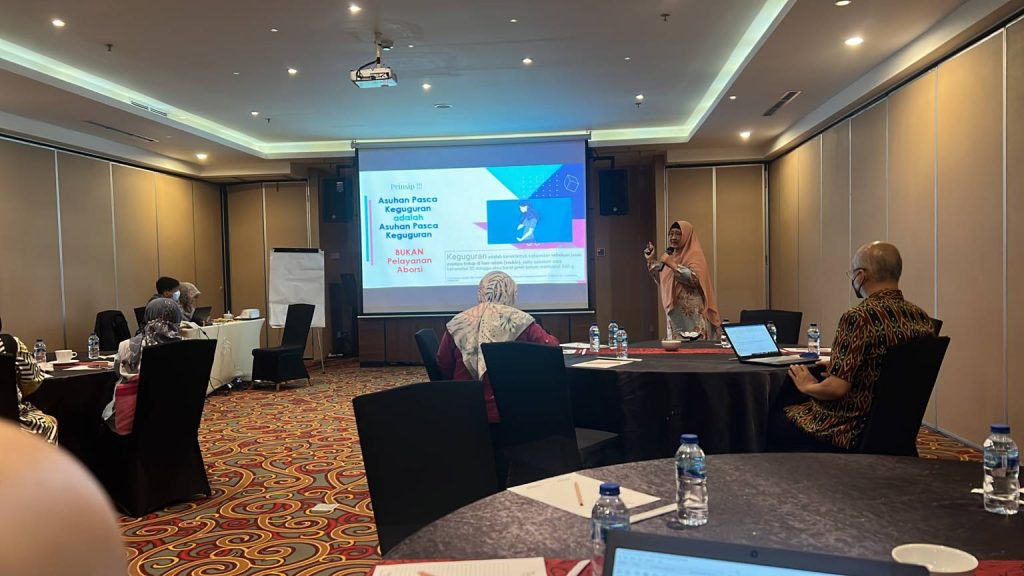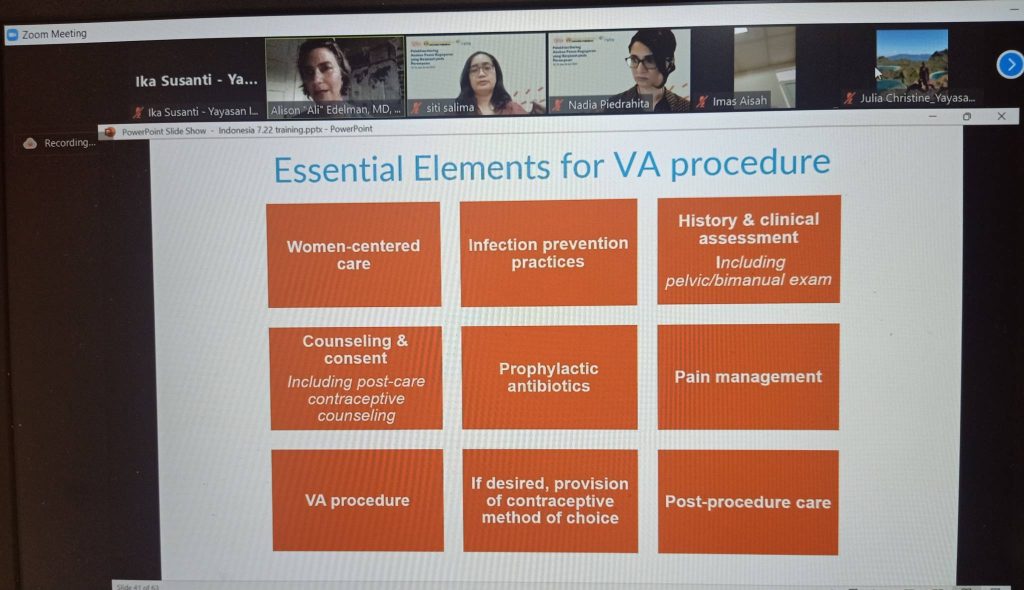IPAS Indonesia facilitated the provision of capacity building to 28 KPKPST cadres and volunteers in the form of Sexual and Reproductive Health and Rights ToT which was held on June 28-30, 2022 at Jazz Hotel Palu.
The training was opened by KPKPST Director Soraya Sultan, with a presentation of data on women’s reproductive health cases received by the KPKPST complaint post. Some of them are cases of rape, child marriage, incest, and stunting that occurred after the natural disasters that hit Sigi and Donggala, Central Sulawesi.
On a daily basis, volunteers and cadres who are also managers of the Women-Friendly Space (RRP), receive complaints and provide assistance to cases of sexual violence in their respective communities.
Knowledge of Sexual and Reproductive Health and Rights for caseworkers is considered necessary so that caseworkers can provide a wider range of options in proposing case resolution to victims.
Knowledge of Sexual Reproductive Health and Rights is also expected to be disseminated to women and girls in discussions in each community.
On the first day of the training, participants learned about the concept of Sexual and Reproductive Health and Rights (SRHR); the difference between reproductive and sexual, the development of SRHR at the international and Indonesian levels, and reproductive rights. Participants learned about the differences between reproductive and sexual organs with the help of “reproductive organ” aprons. The training facilitator, Dr. Reny Bunjamin challenged the participants to be able to name the sexual and reproductive organs in Kaili, the indigenous language of Central Sulawesi. This will be very useful when they will facilitate discussions in each community.
In the next module, participants learn about pregnancy and pregnancy disorders, pregnancy planning with natural contraception such as calculating the fertile period or with conventional contraception such as condoms, vasectomy, implants, injections, and so on. This module continues with knowledge about the right of Post Abortion Care (PAC) which is a right for women who experience miscarriage.
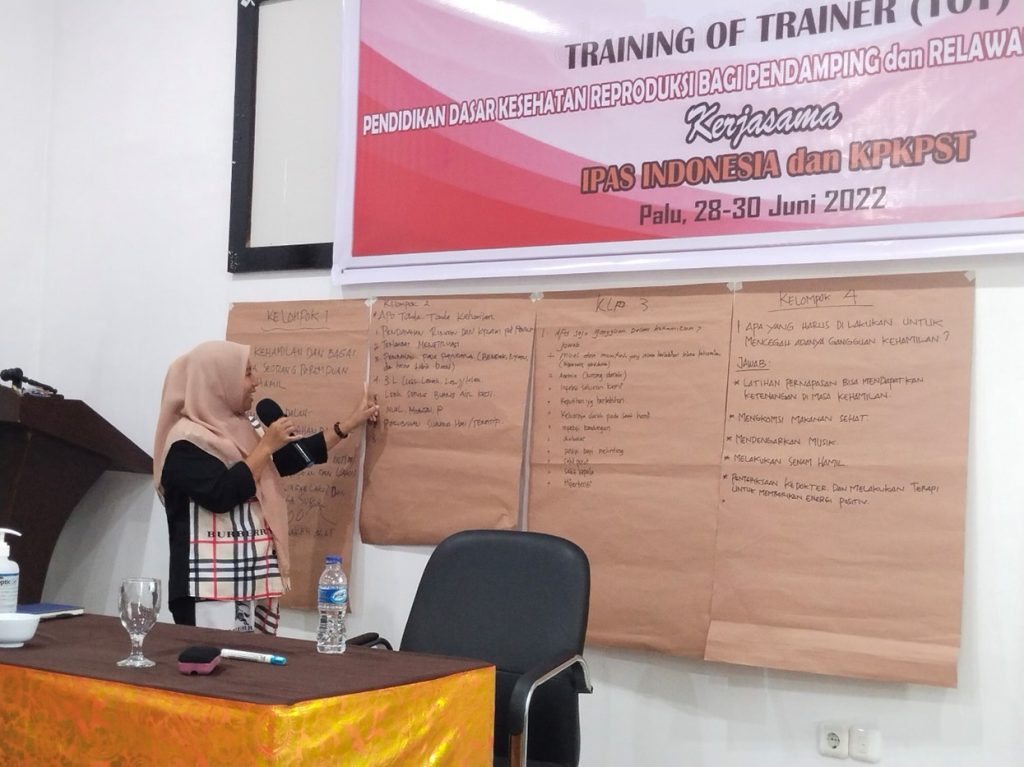
The participants, almost all of whom were housewives in their 40s, were very active in discussing and sharing about their personal experiences and cases related to the above issues so that the class atmosphere became very lively.
The last day concluded with the creation of an action plan for the trainees on how they will create discussions to educate the community on Sexual and Reproductive Health and Rights. (*)
